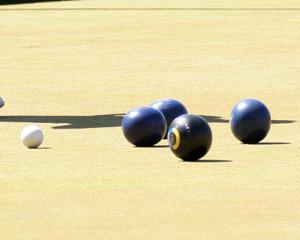
His original sporting direction was in rugby, given his family history. His grandfather Moke Belliss was an All Black 1920-23 and captain on the 1922 tour to Australia.
“He scored the first try against the 1921 Springboks for the All Blacks in the first test on Carisbrook,” he said proudly.
Rugby talent continued with his father Jack playing for Auckland and Wanganui. His first class career spanning the years 1937-53. While Peter himself played for Wanganui in the early 1970's and at club level for Kaierau with players such as All Black Bill Osborne.
“I was playing rugby and bowls, which was a little bit unusual at the time,” he said.
But an Achilles injury curtailed his rugby career in 1977, leading to a full time focus on bowls.
“My bowling career was getting stronger and better and I was never going to be an All Black,” he said having tinkered with bowls since the age of five when the Aramaho Bowling Club was built on the back of his parents place.
Four world titles, four Commonwealth Games, three national singles titles, two national pairs titles and three national fours titles, later Belliss (66) is still very much a part of the national bowls scene and is currently in Dunedin in an attempt to defend the national fours titles at the BLK National Bowls Championships.
“Fours is the ultimate game we have in bowls where teamwork become very important and I'm fortunate that I'm playing with a couple of very good friends, and I think that certainly helps,” he said.
“Defending any title is extremely hard to do and we're down here to do ourselves proud.”
He added that there are some very good teams put together for these championships and that even getting through the qualifying stage was going to be tough.
Belliss is teamed up again with Richard Girvan and Lance Tasker from last years winning combination, but with Blake Signal unavailable, New South Wales champion Mick Beesley comes into the team. Mick's inclusion adds to one of the most experienced set of four at the championships.
Belliss well remembers playing at his first national bowls in 1970 and the first of five national titles he achieved in the singles competition in 1981.
He fondly reflects on what was a golden age for bowls in New Zealand in the 1970s. Because of number of players around the clubs at the time, in many instances there was a waiting list for membership. For instance, when he won the singles title in 1981 there were 1500 in field.
“It showed that numbers were at their greatest in that period. And there were lots of really good players. I think I played something like 15 or 16 matches to win,” he said adding that these days you don't have to win so many matches to get through.
“It was certainly something special to be part of. The singles were certainly my go, but these days I just make up the numbers in singles play, to be fair.”
Belliss is once again partnering Tasker in the pairs, a title they won in 1995.
“I like to think that we are still competitive, even though we're getting a bit long in the tooth these days,” he said.
“And there are a lot of fine young players on their way up, and that's exciting because I'm also a New Zealand selector. So I get to see them and play against them. That's something that's a bit special.”
Belliss said that while the numbers are not as they once were, bowls has some young and exciting talent coming through. Adding that while the quantity may not be as it was, the quality in the fields top heavy, making qualifying very difficult.
He said that as a selector it was certainly one of the events they look at for selection such as Commonwealth Games.
“It's the last of seven events that we look at,” he said adding that the national event is an important indicator given that goes for 12 days, a similar length of time to the world championships and Commonwealth Games.












